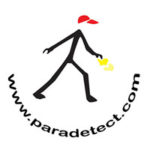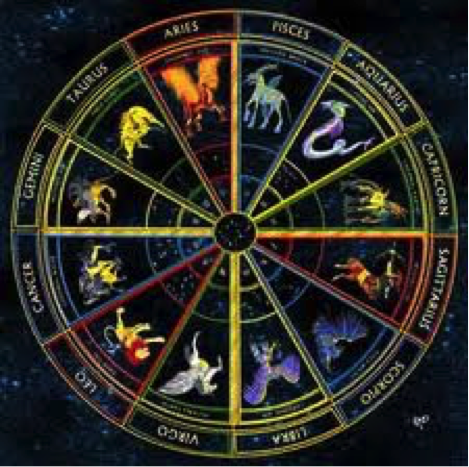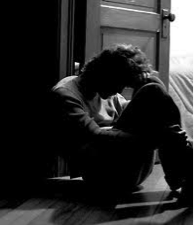 Depression is one of the most common conditions of this age, affecting more than one in ten individuals at a time, irrespective of age, gender or socio/cultural background.
Depression is one of the most common conditions of this age, affecting more than one in ten individuals at a time, irrespective of age, gender or socio/cultural background.
One may come through depression with appropriate assistance and early recognition.
What is depression?
Depression is a mental health condition which affects an individual’s thinking, energy, feelings and normal behavior. While varying from mild to severe it may become disadvantageous even disabling in some cases, leaving a serious impact on the individual’s social life, be it his work, his family or even his communal interaction. Best way to reduce the impact of depression is by accessing information and support to find ways to manage such condition.
Nowadays, a list of eight symptoms has been made available by professionals in the field to help a person find out whether he/she have become a victim of depression.
If one experience five or more of these symptoms, lasting for a period of two weeks or more, one should consult with a mental health professional.

Depression symptoms are:
Feeling sad, anxious or bored
Low energy, feeling tired or fatigued
Under or over-sleeping, or waking frequently during the night
Poor concentration, thinking slowed down
Loss of interest in hobbies, family or social life
Low self-esteem and feelings of guilt
Aches and pains with no physical basis, e.g. chest/head/tummy and leg pain associated with anxiety or stress
Loss of interest in living, thinking about death, suicidal thoughts
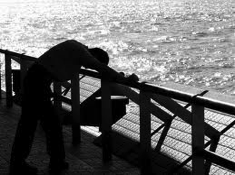
What causes it?
Depression is usually caused by a life trauma or a great disappointment accompanied with feeling of despair, or a lack of solution. It could be breakdown of a sincere relationship, a financial difficulties or any kind of oppression. It may also be an inherent tendency towards depression, and this is a very intriguing case, such genetic factors can be key in the case of bipolar disorder. This mood disorder involves not just periods of depression, but also periods of elation, where the person’s mood is significantly higher than normal. During these periods, he/she may have excessive energy with little need for sleep, may have grandiose ideas and may engage in risk-taking behavior.
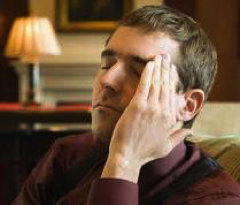
If one suspects he is suffering from depression one must seek an immediate help from a doctor or a mental health professional to get a correct diagnosis. There are a number of treatments for depression, depending on the cause and severity of symptoms and a professional is best placed to decide which, if any, treatment is most appropriate. Accessing reliable information is also vital.
Paradetect offers free information pack, email info@paradetect.com to request one.
Sharing concerns with a trustworthy who understands can also be a help: Paradetect Online Support is available on Paradetect.com website or you can email us for support at info@paradetect.com.
Main Types of Depression
Mild depression: Listlessness or tiredness, hesitance in early morning wakening, indecision, impaired concentration and loss of confidence. It is worth mentioning to note here that the person will not necessarily feel depressed.
Moderate depression: Most of the eight above mentioned symptoms are present: the person feels depressed, is extremely fatigued, has marked sleep disturbance and obvious to others to be depressed.
Severe depression: In addition to the symptoms of moderate depression, the person’s judgment is impaired in a severe depression having an extremely negative and pessimistic view of their own self-worth and future prospects. Strong suicidal thoughts (or intent) will also be present.

A victim of a severe depressive episode may have delusions or false beliefs (e.g. that they are evil, wicked, bankrupt or terminally ill) or may suffer from hallucinations (hearing voices or having visions) with similar themes. When delusions or hallucinations are present, the depression is referred to as a psychotic depression. Such depressions are an extreme extension of the negative thinking that is part of a mild or moderate depression.
In the above situation which is wildly spread in the East, Middle East and Africa where social security lacks, such victims usually relate such symptoms to evil, be it demons or jinn interference or a curse and abandonment.
Paradetect is focusing a great deal of its effort in observing such cases and its associated claims, and acknowledges that there is a noticeable disturbed energy field that is usually associated with moderate and severe depression cases.
Example: an aura of a depressed individual tends to show a sharp red on the monitor when using aura imaging techniques, and some negative vibration emitting from such individuals is also sensed…
Bipolar Disorder
Bipolar disorder involves both depressive periods and their opposite, which are known as elations or manic periods. Symptoms of the depressed phase are the same as those of unipolar depression described above:
Feeling sad, anxious or bored
Low energy, feeling tired or fatigued
Under- or over-sleeping, or waking frequently during the night
Poor concentration, thinking slowed down
Loss of interest in hobbies, family or social life
Low self-esteem and feelings of guilt
Aches and pains with no physical basis, e.g. chest/head/tummy pain associated with anxiety or stress
Loss of interest in living, thinking about death, suicidal thoughts
If five or more of the symptoms above are present for a period of two weeks or more, it is most likely a depressive episode and you should talk to a medical professional.
The symptoms of elation (mania) are:
Feeling elated, enthusiastic, excited, angry, irritable or depressed
Increased energy, ‘never felt as well’, over-talkative or over-active
Reduced need for sleep and marked difficulty in getting off to sleep
Racing thoughts, ‘pressure in the head’, indecision, jumping from one topic to another, poor concentration
Increased interest in pleasurable activities, new adventures, sex, alcohol, street drugs, religion, music or art
Excessive and unrealistic belief in one’s ability, or having grandiose plans
Being unaware of the physical symptoms of illness such as asthma, having muscle tension at the back of the head or round the shoulders
Thinking that one can live forever, taking reckless physical risks or, if angry or distressed, feeling suicidal.
If five or more of these symptoms are present for more than two weeks, it may be a manic episode, and it is advisable to seek professional medical advice.
According to the National Mental Health Association:
If you have experienced five or more of these depression symptoms within the same two week period–especially if a depressed mood or loss of interest or pleasure is among your symptoms–this could be indicative of an episode of depression. The symptoms should not be accounted for by another illness, drugs of abuse or prescription medications.
By answering the questions below you will find out whether you are experiencing depression.
If any five out of the below are answered with yes, then you need to rethink your options by seeking assistance, for you may be suffering from clinical depression.
Q: Do you feel sad or irritable?
Q: Have you lost interest in activities once enjoyed?
Q: Have you experienced changes in weight or appetite?
Q: Have you experienced changes in sleeping pattern?
Q: Do you have feelings of guilt?
Q: Are you unable to concentrate, remember things, or make decisions?
Q: Have you experienced fatigue or loss of energy?
Q: Have you experienced restlessness or decreased activity noticed by others?
Q: Do you feel hopeless, or worthless?
Wish you the best of health
Adam El Masri




